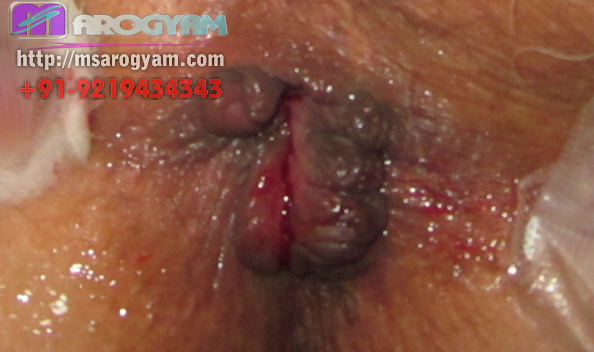ANAL FISSURES
What is a fissure?
An anal fissure is a small tear in the skin that lines the anus. An anal fissure may occur when you pass hard or large stools during a bowel movement. An anal fissure typically causes pain and bleeding with bowel movements.
Anal fissures most often affect people in middle age, but fissures also are the most common cause of rectal bleeding in infants. Most anal fissures heal within a few weeks with treatment for constipation, but some fissures may become chronic
COMMON CAUSES OF ANAL FISSURES
Anal fissures can be caused by trauma to the anus and anal canal. The cause of the trauma can be one or more of the following:
- Chronic constipation
- Straining to have a bowel movement, especially if the stool is large, hard, and/or dry
- Prolonged diarrhea
- Anal stretching
- Insertion of foreign objects into the anus
Other causes of anal fissures (other than trauma) include:
- Longstanding poor bowel habits
- Overly tight or spastic anal sphincter muscles (muscles that control the closing of the anus)
- Scarring in the anorectal area
- Presence of an underlying medical problem: such as Crohn’s disease and ulcerative colitis; anal cancer; leukemia; infectious diseases (such as tuberculosis); and sexually transmitted diseases (such as syphilis, gonorrhea, Chlamydia, chancroid, HIV)
- Decreased blood flow to the anorectal area
SYMPTOMS OF ANAL FISSURE
Signs and symptoms include:
- Pain during, and even hours after, a bowel movement
- Constipation
- Blood on the outside surface of the stool
- Blood on toilet
- A visible crack or tear in the anus or anal canal
- Burning and itch that may be painful
- Discomfort when urinating, frequent urination, or inability to urinate
- Foul-smelling discharge
RISK FACTORS FOR ANAL FISSURES
Factors that may increase your risk of developing an anal fissure include:
- Infancy. Many infants experience an anal fissure during their first year of life, although experts aren't sure of the reason.
- Aging. Older adults may develop an anal fissure partly because of slowed circulation, resulting in decreased blood flow to the rectal area.
- Constipation. Straining during bowel movements and passing hard stools increase the risk of tearing.
- Childbirth. Anal fissures are more common in women after they give birth.
- Crohn's disease. This inflammatory bowel disease causes chronic inflammation of the intestinal tract, which may make the lining of the anal canal more vulnerable to tearing





No comments:
Post a Comment